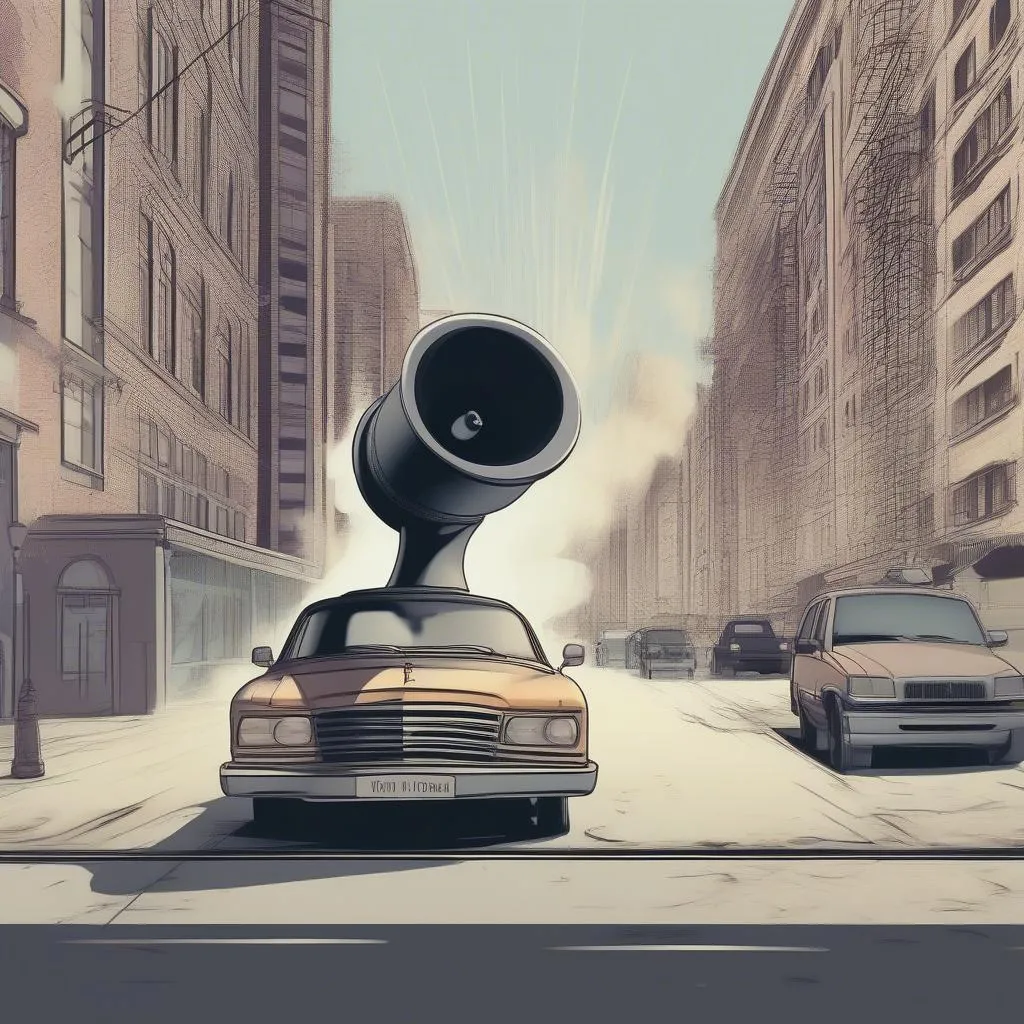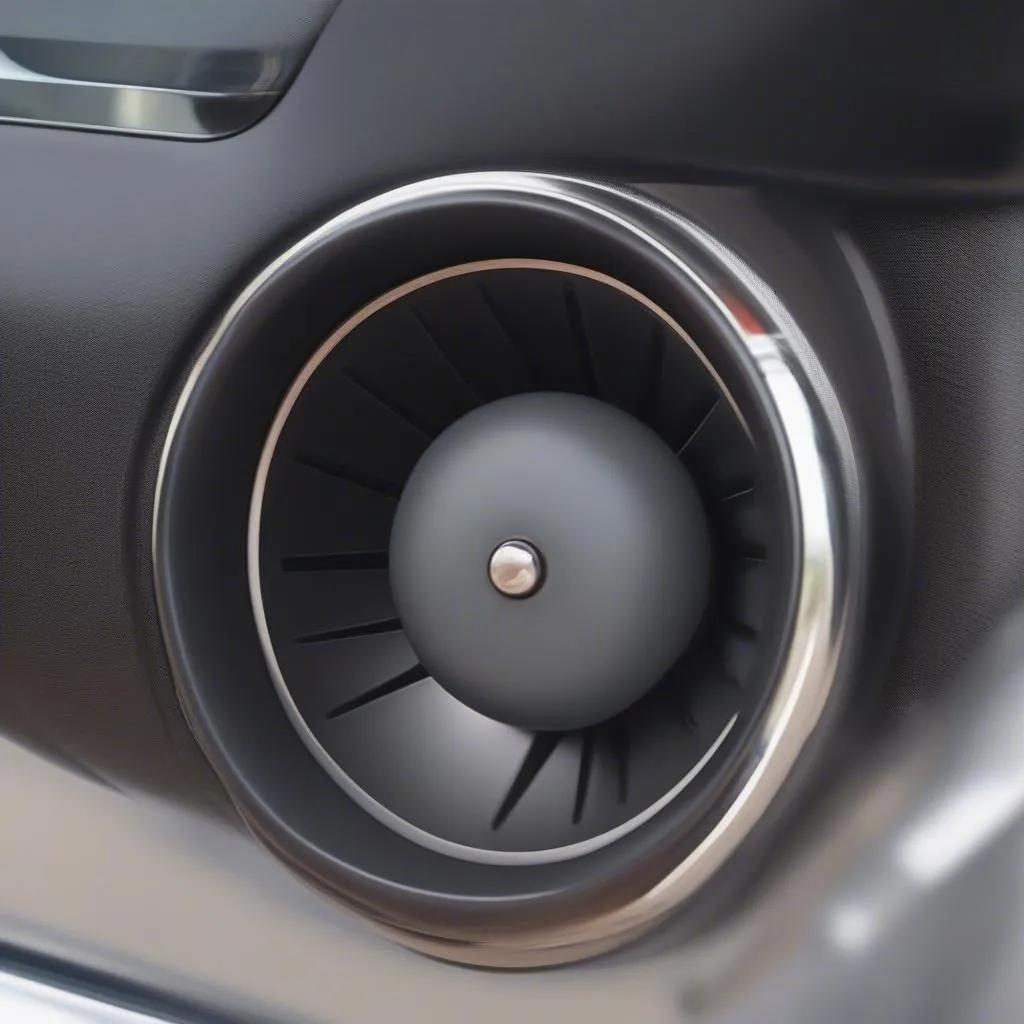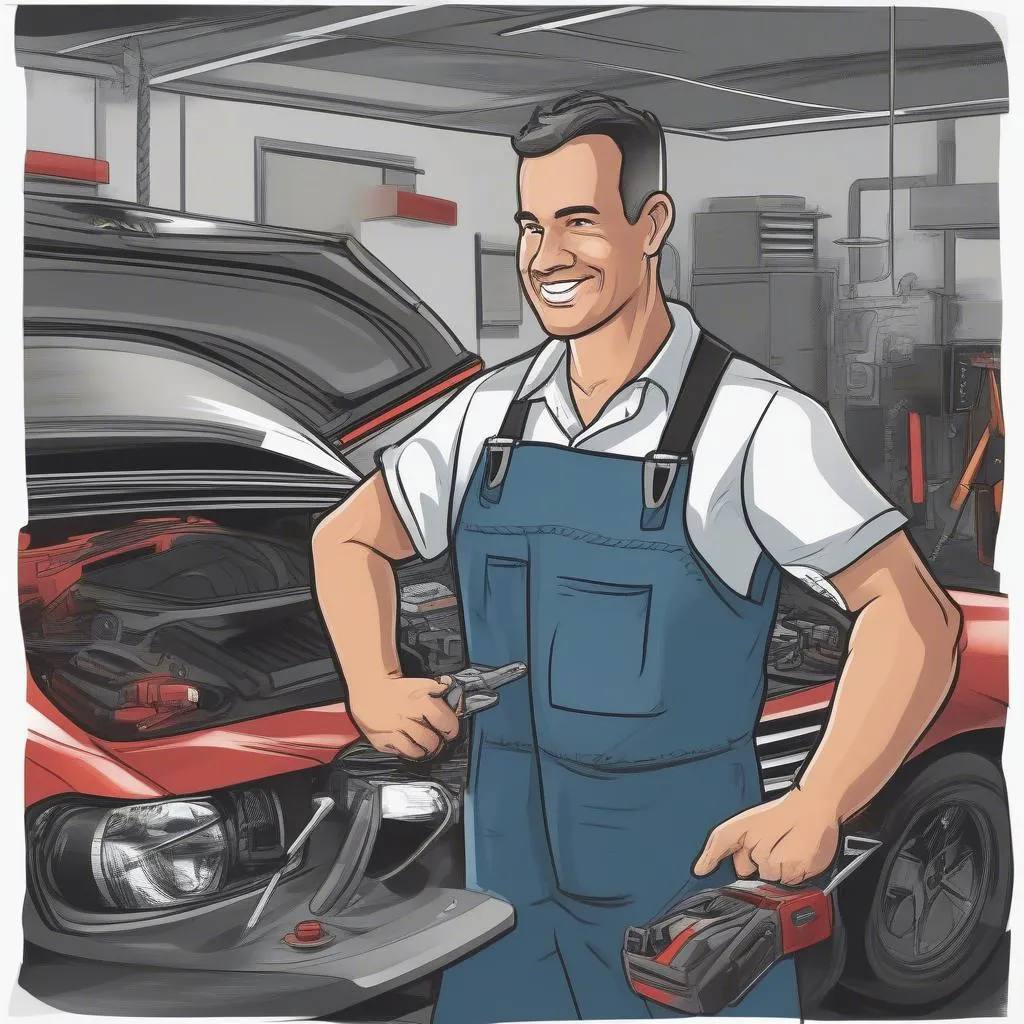You’re cruising down Route 66, the sun is setting, and your favorite classic rock song is blasting on the radio. Suddenly, a beat-up Honda Civic cuts you off. Wouldn’t it be amazing to unleash a deafening train horn blast right then? It’s a tempting thought, right? There’s something undeniably powerful and attention-grabbing about the sound of a train horn. But before you go full steam ahead with installing one on your car, let’s pump the brakes and consider the implications.
What’s the Deal with Train Horns on Cars?
A Mechanic’s Perspective
“From a purely mechanical standpoint,” explains Jake Taylor, a seasoned mechanic in Austin, Texas and author of “The Auto Whisperer,” “installing a train horn isn’t rocket science.” You’ll need an air compressor, a tank, a hose, and the horn itself. But, Jake warns, “The real challenge is doing it safely and legally.”
The Legal Side of Things
Ah yes, the legalities. This is where the train horn fantasy often hits a snag. The laws surrounding train horns on cars vary from state to state, and in many places, they’re strictly prohibited.
For example, California Vehicle Code Section 27001 explicitly states that horns on cars must produce a sound level between 95 and 110 decibels. Train horns, on the other hand, can reach a deafening 175 decibels – louder than a jet engine at takeoff! That’s not just annoying; it’s potentially harmful to hearing and could even cause accidents by startling other drivers.
 Train horn loud noise
Train horn loud noise
The Ethics of Train Horns
Even in areas where train horns aren’t outright illegal, there’s an ethical dimension to consider. Is it really fair to subject others to such an intense noise just because you want to make a statement?
Think about it this way: you’re driving through a quiet residential neighborhood in Portland, Oregon. A young mother is trying to get her baby to sleep. Suddenly, your earth-shattering train horn pierces the peace and quiet. Not cool, right?
Navigating the Train Horn Conundrum
So, you’re still captivated by the allure of the train horn but want to stay on the right side of the law. What are your options?
1. Check Your Local Laws
Before you even think about purchasing a train horn, do your research. Contact your local DMV or police department to inquire about the specific regulations in your area.
2. Consider Alternatives
If train horns are a no-go, don’t despair! Plenty of other aftermarket horns can give your car a more assertive voice without breaking the law or your neighbor’s eardrums. Look for horns with a lower decibel level that still packs a punch.
 Car horn alternative
Car horn alternative
3. Use Your Horn Responsibly
Remember, even a regular car horn should be used sparingly. It’s primarily a safety device, not a tool for expressing frustration.
Frequently Asked Questions About Train Horns on Cars
Is it legal to install a train horn on my car?
As mentioned earlier, the legality varies from state to state. Always check your local laws before making any modifications to your vehicle.
How much does it cost to install a train horn?
The cost can range from a few hundred dollars for a basic setup to over a thousand for a high-end system.
Can I get a ticket for using a train horn?
Absolutely. In many places, using a train horn on a public road can result in hefty fines, and your vehicle might even be impounded.
More Questions About Car Customization?
We’ve got you covered! Check out these other informative articles on our website:
- Aftermarket Exhaust Systems: Everything You Need to Know
- Upgrading Your Car’s Sound System: A Beginner’s Guide
- Legal and Safe Car Modifications
Need Help with Your Car’s Electrical System?
We understand that dealing with car electronics can be a real head-scratcher. If you need assistance with installing any diagnostics tools or have any car-related questions, our team of expert mechanics is here to help 24/7.
 Car mechanic repair
Car mechanic repair
Contact us on WhatsApp at +84767531508, and let’s get your car running smoothly!